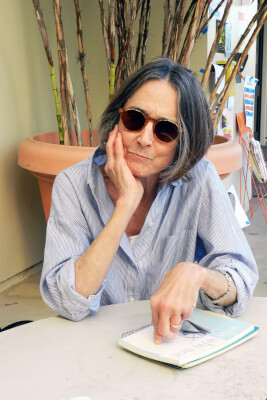
Beyond their committed professions as teachers to the Occidental student body, professors pursue their own academic passions, often producing published works. While teaching, they simultaneously write or conduct research, making their personal lives even busier. Jean Wyatt, Erica Ball and Martha Ronk, three professors who have taught or currently teach at Occidental College, juggle their time as professors and as producers of scholarly work.
Jean Wyatt, an English professor at Occidental, is currently spending a semester at Oxford University as a visiting professor. Her current research is on black British women writers, though her most recent book covered the work of African-American author Toni Morrison. Wyatt said the book — titled “Love and Narrative Form in Toni Morrison’s Later Novels” and published in March 2017 — took her nine years to complete. Inspired by “Beloved,” the first Toni Morrison novel Wyatt ever read, “Love and Narrative Form” won the 2018 Toni Morrison Society Book Prize in the single-author category.
“I’m looking at her notions of love in these novels,” Wyatt said. “Her idea of love is always surprising; it’s always new. It’s never our conventional idea of love.”
Wyatt said she used sabbaticals and summers to write, as she found it difficult to write and prepare for classes at the same time.
American Studies and Black Studies professor Erica Ball, who has been teaching at Occidental for three years, has also pursued her academic interests through writing. In 2017, Ball composed an edited collection of scholarly essays and academic contributions based on “Roots,” a 1976 novel by Alex Hale that inspired a TV series in 1977 and its 2016 remake. Ball’s book is titled “Reconsidering Roots: Race, Politics, and Memory.”
“The idea was to not write a production history of the television series, ‘Roots,’ but to explore the significance of ‘Roots’ as a cultural phenomenon,” Ball said.
Ball’s idea for the book emerged in 2013, inspired by the upcoming 40th anniversary of “Roots.”
“I’ve been thinking about the significance of representations of slavery in the United States,” Ball said. “Many milestones in American popular culture somehow reflect the influence of slavery.”
According to Ball, her book came from a media history standpoint, but also from a cultural standpoint. She wanted to know why this movement gained such popularity in the United States.
“What is it about representations of slavery that matter so much?” Ball said.
Ball explained she did her writing during summer breaks, sabbaticals and sometimes squeezed it into the semester.
Martha Ronk is a retired English professor and award-winning published poet who taught at Occidental from 1981–2014. Ronk said that after being at Occidental for so long, she likes to continue to be involved in the Occidental community by auditing classes on subjects such as Islam, art history and music.
Ronk explained that her book, “Why/Why Not,” published in 2003, is inspired by Shakespeare’s “Hamlet.” Ronk engages with the ideas in Hamlet’s speech around the meaning of life in the face of suffering.
“I thought I would do a kind of echo, so instead of doing ‘To be or not to be,’ it’s ‘Why or why not?’” Ronk said.

Aside from the influence of “Hamlet,” Ronk was also inspired to incorporate her own application of Hamlet’s speech.
“[I was influenced by] having been two kinds of people — both an academic and being a poet — and wanting there to not be a schism or separation between them. I was trying to bring them together. So I’m interested in the whole sense of dialogue and how you set up a kind of dialogue,” Ronk said.
Ronk said she enjoyed teaching and writing at the same time. However, while being a single mother and having a professional career, it became difficult to manage while also attending conferences.
Although it is difficult to balance a career and family, Ronk continues to make time for poetry and other writing as a way to creatively think outside of conventional standards.
“Poetry is another way of thinking. We mostly learn to think discursively [and] logically,” Ronk said. “There are other more experimental, abstract, circular, associative, imagistic ways of thinking that are also substantial that tell you about the world and other people.”
![]()



































